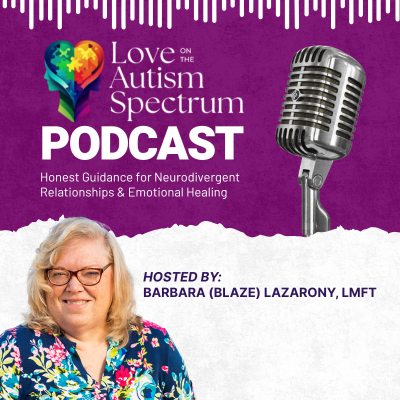David Richo’s How to Be an Adult in Relationships is a masterful book that emphasizes mutual respect, mature communication, and fostering growth.
This book is the foundation for all my work with couples, and this post introduces key points from the book.
Key Takeaways
- A thriving relationship is based on mindful loving that incorporates the ‘Five A’s’ framework: Attention, Acceptance, Appreciation, Affection, and Allowing, as outlined by David Richo in ‘How to Be an Adult in Relationships.’
- Unconditional love is crucial for a healthy relationship. It requires genuine acceptance of one’s partner and an embrace of one’s true self without imposing too many rules or expectations.
- Handling conflict with maturity is key to growing a relationship. It involves respectful communication, acknowledging differences and imperfections, and active listening.
Understanding the Five A’s of How to Be an Adult in Relationships
- Attention – Giving your full focus and being fully present with others shows that you truly hear and see them. This means actively listening, putting aside distractions, and engaging with them meaningfully so they feel valued and understood.
- Acceptance—Embracing people as they are without judgment or trying to change them fosters an environment of trust and respect. Acceptance means understanding that everyone has unique experiences, perspectives, and flaws and appreciating them for who they are at their core.
- Appreciation – Recognizing and valuing the qualities, efforts, or contributions of others can make a significant difference in relationships. By expressing gratitude or acknowledging someone’s strengths, you uplift them and strengthen your connection and mutual respect.
- Affection – Expressing warmth, care, and love through words or actions creates a sense of closeness and emotional security. Whether through a kind word, a hug, or a loving gesture, affection helps nurture bonds and shows others they are cared for.
- Allowing – Creating space for others to be themselves and respecting their autonomy is vital to building healthy relationships. Allowing means supporting people’s choices, allowing them to express themselves, and encouraging personal growth without imposing your expectations or control.
Cultivating a Healthy Adult Relationship
The heart of a thriving, healthy relationship lies in mindful loving, a concept deeply rooted in the five A’s: attention, acceptance, appreciation, affection, and allowing. Attention, the first of these elements, entails being present and attentive to your partner, fostering a deeper connection and understanding.
Recognizing and validating a person’s feelings is crucial in this context. It helps acknowledge real emotions and behaviors, leading to healthier interactions and deeper connections.
Incorporating the five A’s can profoundly shape healthy relationships, positively affecting your and your partner’s well-being. David Richo’s book How to Be an Adult in Relationships provides valuable insights into how these principles can lead to personal transformation in love and relationships, especially when viewed from an adult perspective. By applying these principles and understanding the role of personality traits, one can become capable of nurturing and maintaining strong connections with others.
Embracing Unconditional Love
Unconditional love is about:
- Loving your partner freely, without expectations of reciprocation or attachment
- Avoiding unacceptable or hurtful behavior
- Central to this is acceptance, which involves respecting and loving your partner for who they are. This also means understanding and validating the other person’s feelings.
- Fostering profound connections and empathy
Acceptance involves honesty, respect for boundaries, accountability, and avoiding imposing too many or excessive rules.
Expressing Authentic Appreciation
Appreciation is a cornerstone of a strong relationship. Feeling loved and acknowledged and recognizing the efforts of others on behalf cements good relationships. Authenticity, coupled with affirmation, enables the expression of genuine feelings, including the deepest feelings, without fear of judgment or rejection. Considering the other person’s feelings is essential to maintaining a healthy connection. This practice of reciprocal appreciation fosters an environment where both parties feel valued and understood.
Moreover, engagement, which involves attending to your partner’s concerns and reciprocating their attempts to connect, is key to affirming their value and importance in the primary relationship, especially when dealing with a self-focused partner.
Nurturing Physical Affection
Physical touch and emotional intimacy form the bedrock of a fulfilling relationship by fostering close connections and mutual understanding. While affection includes emotional, spiritual, and physical components, there can also be instances of sex occurring without any affection whatsoever. Expressing affection can be achieved through physical touch, such as hugging, holding hands, and kissing. These gestures cultivate emotional intimacy, facilitating the development of a profound sense of closeness and connection, making the relationship feel intimate without needing effectiveness in other forms. As a result, relationships flourish, creating a strong foundation for lasting happiness and growth.
Allowing Space and Freedom
Allowing your partner space for personal growth while preserving a strong bond is key to their individual development and a fulfilling romantic relationship. Signs that your partner may require additional autonomy include reluctance to express their needs and desires and limited open communication. To provide space without inducing feelings of isolation, it is essential to respect their need for space and provide reassurance about the stability of your relationship.
However, excessive space can lead to diminished connection and shared experiences.
Handling Unacceptable or Hurtful Behavior Like an Adult
Handling conflicts with maturity fosters personal and relational growth, facilitating the resolution of disagreements. This involves:
- Being mindful of and respecting differences
- Refraining from disrespectful language
- Addressing issues as they arise
- Acknowledging one’s imperfections
Active listening is instrumental in conflict resolution, fostering mutual understanding and respect.
Managing conflicts with maturity can result in more resilient partners. It enables effective communication and resolution of issues without exacerbating emotions.
Building Self-Confidence Within the Relationship
Cultivating self-confidence within a relationship can lead to:
- A more satisfying and well-balanced partnership
- Improved intimacy
- Better communication
- Reduced jealousy
- Less seeking of validation
- Healthier relationship dynamics
Summary
In this journey through adult relationships’ complex and rewarding landscape, we’ve explored the importance of several key principles that contribute to building healthy and fulfilling connections. Mindful loving teaches us to be present and intentional in our interactions, valuing our partner’s needs and feelings. Embracing unconditional love reminds us to accept our partners for who they are, even as they grow and change. Expressing authentic appreciation helps us strengthen bonds by acknowledging the unique qualities and efforts of our loved ones, fostering a sense of mutual respect and gratitude.
Nurturing physical affection, whether through a simple touch or a loving embrace, reinforces emotional intimacy and connection. Allowing space and freedom in a relationship is equally vital, as it respects individuality and encourages personal growth, ensuring partners do not lose their sense of self. Handling conflict maturely is another cornerstone, where open communication, patience, and empathy pave the way for resolving issues without damaging trust. Finally, building self-confidence within ourselves empowers us to bring our best selves into the relationship, creating a strong foundation for mutual growth and support.
Each of these elements plays a pivotal role in shaping how to be an adult in relationships, offering a roadmap for navigating the challenges and joys of love with maturity and wisdom. As we progress, let us remember these principles, practice them consistently in our relationships, and witness the following profound transformation. By committing to these values, we can create bonds that are rewarding and meaningful and stand the test of time.
Frequently Asked Questions
What five A’s are included in How to Be an Adult in Relationships?
According to David Richo in How to Be an Adult in Relationships, the five A’s of adult relationships are attention, acceptance, appreciation, affection, and allowing.
How do I stop being the problem in my relationship?
To stop being the problem in your relationship, you must communicate openly, practice self-care, and ensure mutual respect and clear communication with your partner. It is essential to be patient and kind to yourself as you work on your relationship.
What does it mean to be in an adult relationship?
Being in an adult relationship means trust, open communication, and mutual respect. It involves feeling secure in the commitment and making friends outside the relationship without unfounded worries about cheating or dishonesty.
What is the importance of physical affection in a relationship?
Physical affection is important in a relationship as it fosters a close connection and understanding between partners, contributing to a general attitude toward a happy and healthy relationship.







